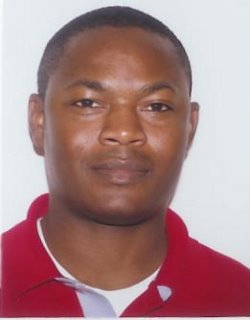Rethinking Assessment and Its Role in Supporting Educational Reform.
According to Bond (1995), “content standards - knowledge, skills, and behaviors required of students to achieve at high levels are been developed at the national and state levels in such areas as mathematics, science, geography, and history.” This is in response to the awareness that our society is changing from industrial age to information age. It is no longer sufficient to have basic reading and arithmetic skills, but the ability to access, analyze, interpret, and use information for making decisions are becoming basic requirements for success in today’s labor market. Educators, policy makers and parents are united in calling for a closer match between the skills students learn in school and the skills they will need upon leaving school (Bond, 1995). On a personal note, my interest in classroom activity that cannot be translated to authentic and or real life situations has no value and is considered a waste of my valuable time. It is nothing but pouring of water in a basket.
Teachers need to change teaching and learning geared toward passing standardized tests only. Instructions should be focused on promoting and encouraging “engaged learning” that prepare students for 21st century skills. Passive learning and all support for it should be thrown out the window. Teachers need administrators and policy makers’ support in their effort to root out shortsighted and outmoded learning theory. Challenging human intellectual abilities will ensure they can construct personal cognitive maps interconnecting facts and concepts. Then we can expect real learning to take place and not one skill at a time spoon-feeding (Bond, 1995). Educational reform is knocking at the door and the message is for us to rethink assessment and standards and make the necessary changes in teaching and learning based on authenticated research with clear goals in mind.
According to Roeber (1995), “the real goal of reporting assessment results to students, parents, schools and the public is to help children learn.” This will ultimately give us insight on what direction educational reform should be directed if any. Creating a common ground between alternative and traditional assessment will make sure of the important goal of selecting assessments that match both outcomes to be assessed and the purpose of the assessment (Bond, 1995). I agree with Michele’s blog, “multiple solutions place difficulties on grading and evaluating students against each other.” I think forging a “partnership” between traditional and alternative assessment will work out good for all involved. However, time is needed for any change to occur. Adopting a change before buy-in from staff and not allowing them needed time will be detrimental (Bond, 1995). It may result in resistance from staff and the change may be ineffective. Assessments to determine what students know and what they can do should be identified with purpose since one assessment cannot serve both purposes. If assessment is to be used in any purpose then it should be valid. Drawing conclusion on student X superior ability over student Y needs authentication. A change is good but not easily embraced. However, a careful examination of reason(s) for the change can make the transition easy and acceptable.
[References]
Roeber, E. (1995). Critical issue: reporting assessment results. North central regional educational laboratory. Retrieved 13 November, 2006 from: http://www.ncrel.org/sdrs/areas/issues/methods/assment/as600.htm
Bond, L. (1995). Critical Issue: rethinking assessment and its role in supporting educational reform. North central regional educational laboratory. Retrieved 13 November, 2006 from: http://www.ncrel.org/sdrs/areas/issues/methods/assment/as700.htm


0 Comments:
Post a Comment
<< Home